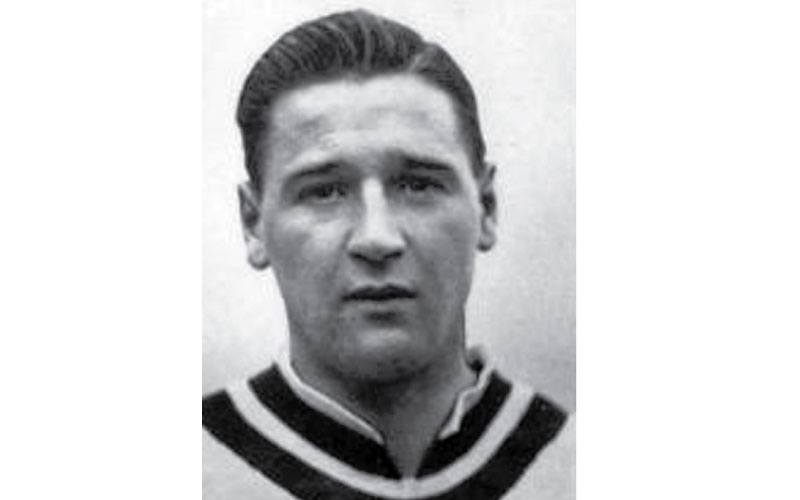Eric Houghton (1910-1996)
WILLIAM Eric Houghton showed from an early age he was destined to be a great sportsman.
But he excelled himself by playing football for England, managing one of the country’s top clubs, winning the FA Cup and playing county cricket.
In the school sports at Donington Grammar School, as a 16-year-old he won the 100yds in 11 secs, the 220yds, 440yds and was second in the mile. To complete the day he was second in throwing the cricket ball and long jump and third in the high jump.
Eric Houghton was born in Billingborough, when Aston Villa were the reigning Football League champions.
He was recommended to Villa, following a short spell with Boston United, by his uncle Cecil Harris, after a brilliant season in schools football, during which he scored 88 goals.
It was a footballing family. His Billingborough cousins Roy Houghton and Reg Goodacre played for Notts County and West Ham respectively. (Eric was also great uncle to former Glasgow Rangers and England goalkeeper Chris Woods).
He signed for Aston Villa in August 1927 and made his debut two-and-a-half years later.
In 1930-31 immortals like Billy Walker and Pongo Waring helped Eric to establish an equally eternal record of 128 goals in the top flight, with the renowned shooting of Eric himself responsible for 30 of these.
He made nearly 392 appearances for Villa and scored 170 goals, including 72 out of 79 spot kicks, before his departure to Notts County in 1947.
His form didn’t go unnoticed by the England selectors, who awarded him seven caps in the early thirties. He scored on his debut against All-Ireland.
Eric played a part in one of the most controversial episodes in the Villa’s history, when the club toured Germany in 1938 and almost caused a diplomatic crisis by refusing to perform the Nazi salute.
An England side had just played the Germans and were warned by the Football Association that if they refused to give the infamous salute they would not be selected again.
They complied and similar was expected of the Villa but they under-estimated the principled Eric.
After the war Eric left Villa Park to play for and eventually manage Notts County, taking them to the Third Division (South) Championship in 1949, before returning in 1953 to take over from George Martin as Villa’s manager.
His finest hour in this capacity came in 1957 when his Villa team, built on the ethics of teamwork and endless stamina, upset both the odds and the media by beating the Manchester United’s Busby Babes 2-1 in the FA Cup Final, thereby denying them the double and preserving Villa’s record as the last team to do it, 60 years earlier.
In the league, however, the fifties was a decade of continual struggle and Eric eventually paid the price when he was asked to resign.
In his autobiography Going For Goal, Peter MacParland paid tribute to his former boss.
He said: “All the players liked Eric. He’s a real gentleman. In fact he’s too nice a chap to be a football manager.
“After he left, he was offered several thousand pounds by one Sunday newspaper for his story, but Eric refused to get involved in any mud-slinging against the club he loved.”
Villa, the club had not seen the last of Eric Houghton. He returned to give sterling service as a director and eventually became the club’s only permanent senior vice-president.
He played cricket for Warwickshire, scoring 167 runs from 11 innings in 1947 and 1948.There are two executive suites named after him at Villa Park, recalling the winger with one of the most powerful shots in the game.
Eric may never have been paid a six-figure salary, made millions on share dealings and named a stand after himself but Eric Houghton could justifiably lay claim to the title Mr Aston Villa.
He died at Sutton Coldfield.
His son Neil became Chairman of Warwickshire County Cricket Club and his great-nephew Chris Woods was a successful international footballer.





Leave a Reply
You must be logged in to post a comment.